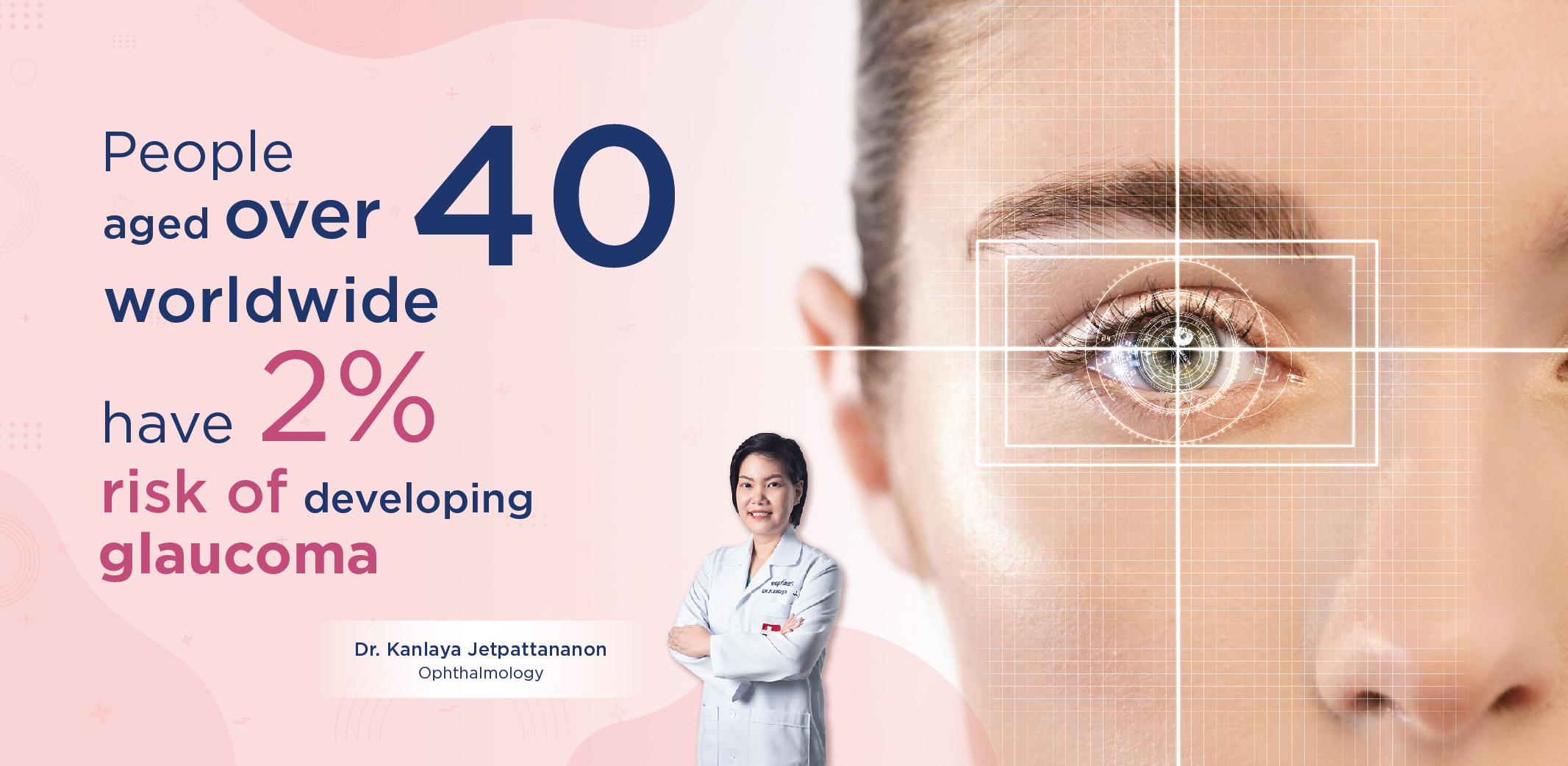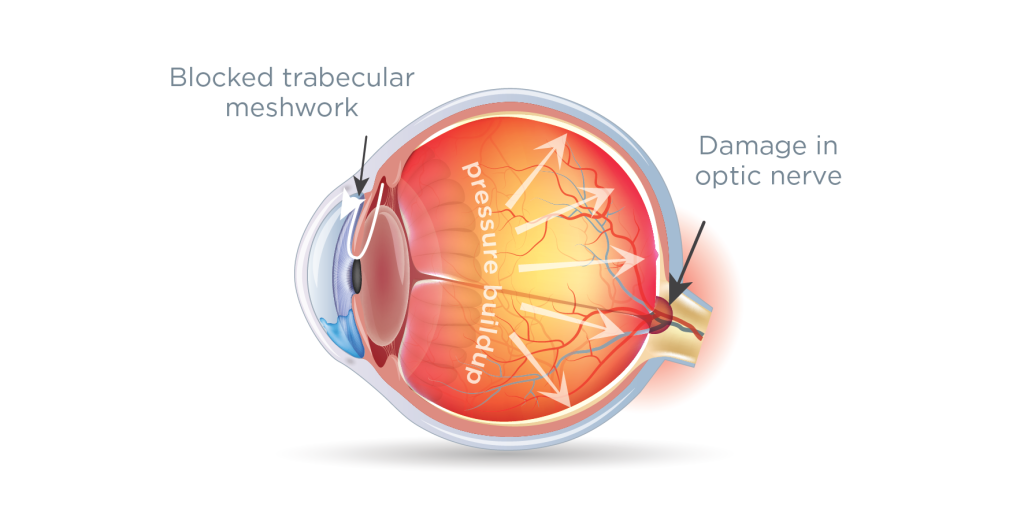
Glaucoma is a group of diseases involve the damage of optic nerve. Continuing damage of the optic nerve causes permanent vision loss.

Risk factors

High intraocular pressure

Over 40 years old

Have a direct relative history of glaucoma

Very short-sighted or very long-sighted

Have a direct relative history of glaucoma

Very short-sighted or very long-sighted
Categor
1. Open angle glaucoma
- High intraocular pressure type
- Normal intraocular pressure
“Most” are asymptomatic and are often detected by coincidence. Blurred vision, known as tunnel vision, is usually a common symptom in the late stages of the disease.
2. Closed angle glaucoma
- Acute closed angle glaucoma
It is an “emergency” that requires timely treatment. Because the eye pressure rises dramatically and quickly, it damages the optic nerve. The symptoms are severe such as severe headache, severe eye pain, nausea and vomiting, light sensitive, rainbow-color halo, etc. If untreated, vision loss can occur.

3. Congenital glaucoma
It is found in newborns or children, which has been found to be caused by heredity. It is rare but relatively severe and difficult to control. If untreated at an early stage, often blindness.
4. Secondary glaucoma or glaucoma caused by other diseases.
For example, a history of retinal surgery, inflammation in the eyeball, eye tumors, mature cataract, late-stage diabetes, etc., as well as taking certain medications such as steroids, osteoarthritis medications.
Glaucoma Diagnosis
Done by seeing an ophthalmologist or Glaucoma specialist.
Alternatives to glaucoma treatment
Treatment of glaucoma depends on the type of disease and the stage of the disease.
The goal is to reduce intraocular pressure to such a level that the optic nerve will not be destroyed more. To maintain the patient’s optimal vision.
- Drug treatment by using eye drop(s) Which currently has many groups of action by instillation need regularly monitor the symptoms and intraocular pressure as prescribed by the doctor.
- The use of lasers depends on the type of glaucoma.
- Surgery is usually used in cases where the patient has already undergone medication or laser treatment but cannot achieve the goal or is unable to control the disease.






